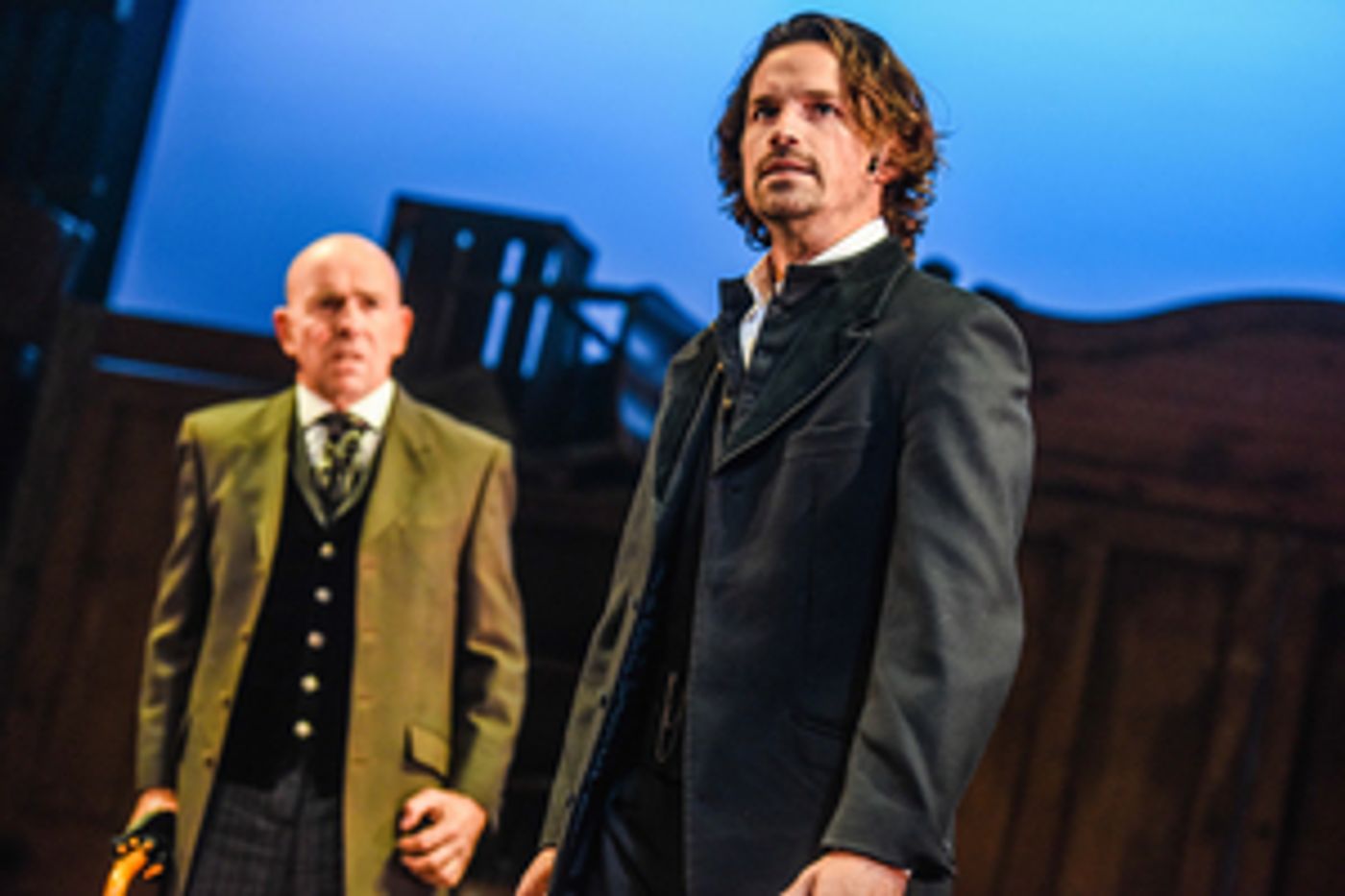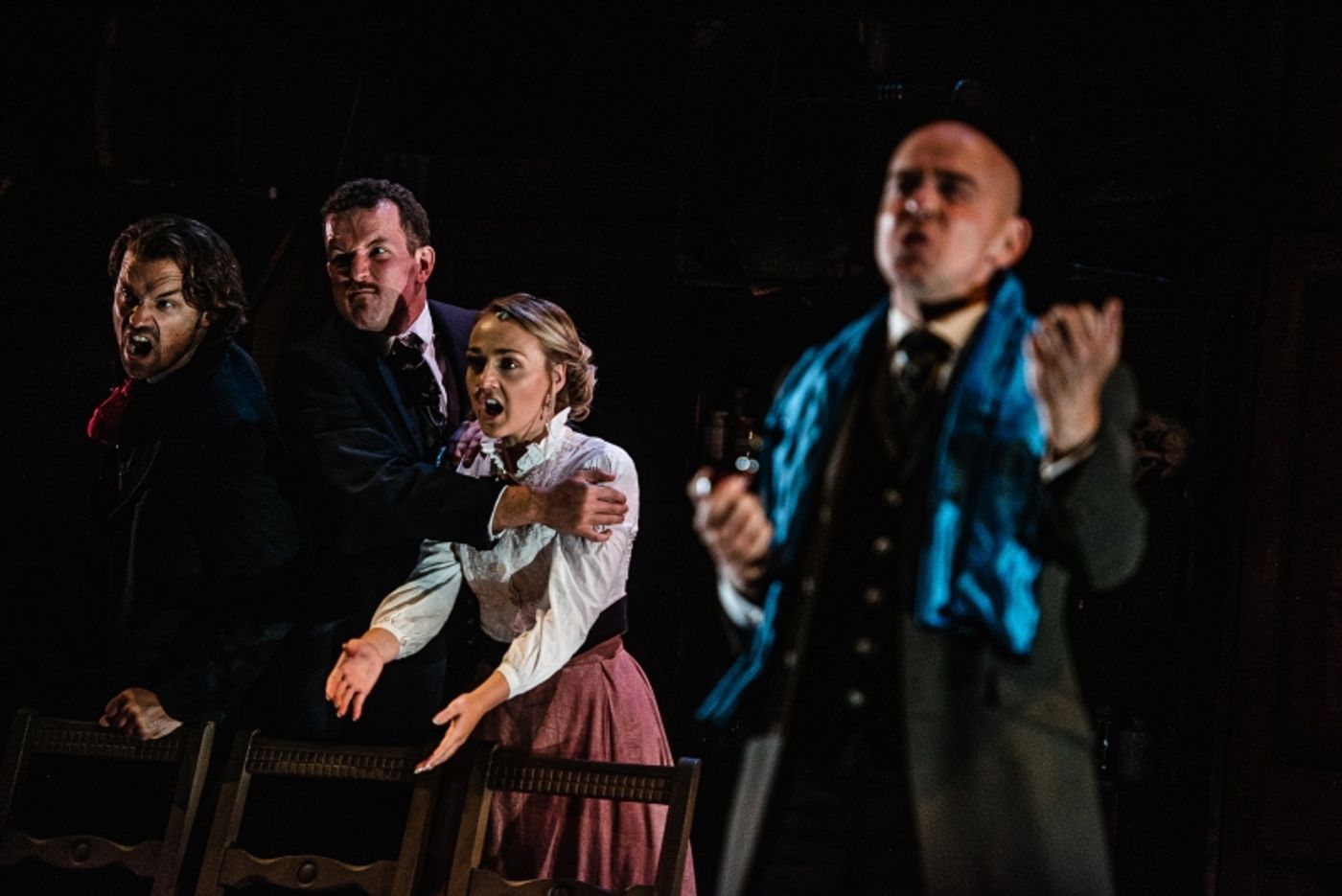Guest Blog: Adaptor Nick Lane On THE STRANGE CASE OF DR JEKYLL AND MR HYDE
Blackeyed Theatre's production is touring the UK

As we've crept tentatively towards theatres reopening their doors I've heard theatre described variously as an oasis of peace, as hope's crucible, and as an essential example of the warm, collective experience we need to return to. And all of that is lovely - it really is. Hope. Peace. Warmth.
So why return with an adaptation of a Victorian Gothic chiller whose eponymous character (well, 50% of him) does not deal in any of that?
Let's go back a bit.
I was a teenager when I first read Strange Case of Dr Jekyll and Mr Hyde. It's not a particularly long book, and I'd already been keyed into the twist, but even knowing that didn't quell the fascination with the tale. How could someone as decent as Henry Jekyll transform into someone so repellent? Why would he want that? Who would do that more than once? What was his aim?
I returned to the same questions many years later when I was originally asked to adapt the story for the stage - but by then I had an answer.
In 1996, when I was still acting and while working for the BBC, I was involved in a car accident which exacerbated a pre-existing back problem, turning it into a significant spinal disorder. I'd just turned 26 and things were about to change for me. Slowly, but significantly, my spinal vertebrae fused together, restricting my movement and... well, it altered the direction of my life.
So when looking for the "Why" behind Jekyll's decision to pursue his experiment to its murderous end, I put myself in his position. What if I was given a potion and told "Drink this and you'll feel as well as you did before that guy ran into you. No back disorder, no fused spine, you can run, breathe, you'll feel physically great... but everyone you meet will hate you."
Would I take it? Would anyone?
I concluded that your ego would tell you that, being a decent kind of a bloke, not unpleasant, quite friendly, you could change the way people see you.
But once Jekyll is Hyde, he can't change people's opinion of him - and part of him doesn't want to. Would that be me? Would the adrenaline rush of being able to do all the things I hadn't done for years stop me from caring what people thought? And once that genie was out of the bottle, would I have the strength to put him back in?
 That was the seed of it. The flip side of a man as mentally brilliant but as physically weak as Jekyll is someone physically powerful but mentally broken, given to venting his passions at will, often to violent and bloody ends.
That was the seed of it. The flip side of a man as mentally brilliant but as physically weak as Jekyll is someone physically powerful but mentally broken, given to venting his passions at will, often to violent and bloody ends.
I then, with the help of friends far smarter than I am, looked into the history of neuroscience and found that the period in which the book was set was filled with pioneers exploring the different functions of the brain. Add that to the darker corners of Victorian society and there's the start of a decent tale here. Only one thing missing though.
A strong female character.
Considering how influential on Stevenson's life his wife was (it's not understating it to say that she encouraged him to create his best work), I really wanted a similar figure in Jekyll's life. And possibly Hyde's. Fanny Stevenson was an American, and that outsider's perspective was something I wanted as well - though I wasn't keen on being quite so 'on the nose' as to make my character American too. Leaning again on history, there was a huge influx of Irish men and women coming over to England at that time, and that seemed perfect.
From there, the whole thing started to fit together...but I'm not going to go into it any further than that. I'd rather you went to see it on tour. If we get it right, it'll give the people who already know the twist the kind of answers I was looking for when I was a kid.
More than that, it's my hope - after the year we've had - that audiences will get the kind of story that sets pulses racing, gets them thinking, talking, connects them. And, beyond those two hours in the theatre, brings them back to seek out other stories, other experiences. Reminds them what theatre is and can be.
The Strange Case of Dr Jekyll & Mr Hyde is touring from 14 September - find full dates and venues here
Photo credit: Alex Harvey-Brown
Videos

